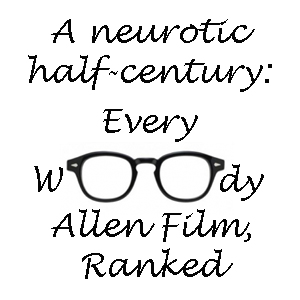“Push” (2009) is a movie-length version of what TV’s “The Gifted” would later show: people with superpowers on the run from government agents. Director Paul McGuigan’s film makes a strong case that this material works better in a movie than in a drawn-out TV series.
One thing is notably missing: character development. But there is no padding to the narrative, and no melodramatic ennui.
Hong Kong is king
The star of “Push” is actually the location: Hong Kong. In “Black Panther,” people were excited when the action briefly goes to South Korea, but here we have an entire film that shows off the colorful culture of a thriving Asian city, where brightly lit evening streets contrast with the dim hovels of humanity stacked atop each other.

“Push” (2009)
Director: Paul McGuigan
Writer: David Bourla
Stars: Camilla Belle, Dakota Fanning, Chris Evans
Smartly, writer David Bourla is not enamored by the idea of superpowers, and I think he’s in line with most viewers on that point – superpowers were old hat even in 2009. We get an opening voiceover where Cassie (Dakota Fanning) spells out the mental powers. The 13-year-old is a Watcher: She can see glimpses of the future, which she sketches on the pad she carries everywhere.
Nick (Chris Evans, in the second of his three superhero roles, sandwiched between “Fantastic Four” and “Captain America”) is a Mover; he has telekinetic powers. Sniffers can track people by sniffing their belongings like dogs (yeah, it’s pretty funny to see “Law & Order’s” Corey Stoll doing that). Shadows can block trackers if they are in close proximity to the target.
And there are the titular Pushers, namely Camilla Belle’s Kira and the lead baddie, Djimon Hounsou’s Carver. This power will be familiar to fans of the “X-Files” episode “Pusher.” Kira and Carver can plant suggestions into people’s heads that make them do something.
Powers for thefts and cons
There’s not much character growth in “Push,” and arguably there aren’t even any superheroes in it – just superpowered people looking out for themselves.
Most of the good guys use their powers for theft or con jobs; they are good guys in the sense that they aren’t the bad guys. Indeed, this is a caper film with superpowers, with both sides seeking “the case,” which midway through the film grows beyond a maguffin.
“Push” is more about how superpowered people operate in society than how the individuals grow or change; it builds its world via action and intrigue rather than exposition (aside from Cassie’s quick opening lesson).
To its credit, “Push” overcomes the sketchy character work with top-shelf casting – Evans as the likable Everyman, Fanning as the preteen who acts wise beyond her years, Belle as the troubled bombshell, Hounsou as the dapper villain. These are archetypes for the purpose of shorthand communication with the audience, I suspect.

The film wants to be an artsy caper classic. A final fight amid bamboo scaffolding features explosions of colorful dust, which I guess is the paint used for the surrounding murals. Never for a moment is “Push” – and Hong Kong – uninteresting to look at.
McGuigan delivers a deliciously stylish take on mental superpowers. But, in the end, “Push” is a style piece. The heroes remain defined by their supernatural powers rather than their human traits, even though the actors try to push beyond what’s on Bourla’s page. Superhero fans and caper fans will get a kick out of it, but it’s too thin to rise to the level of a classic.

